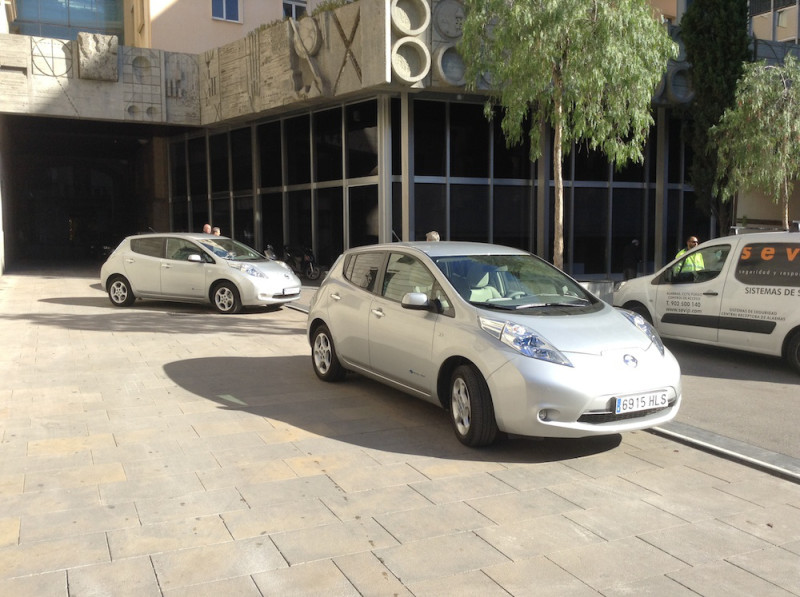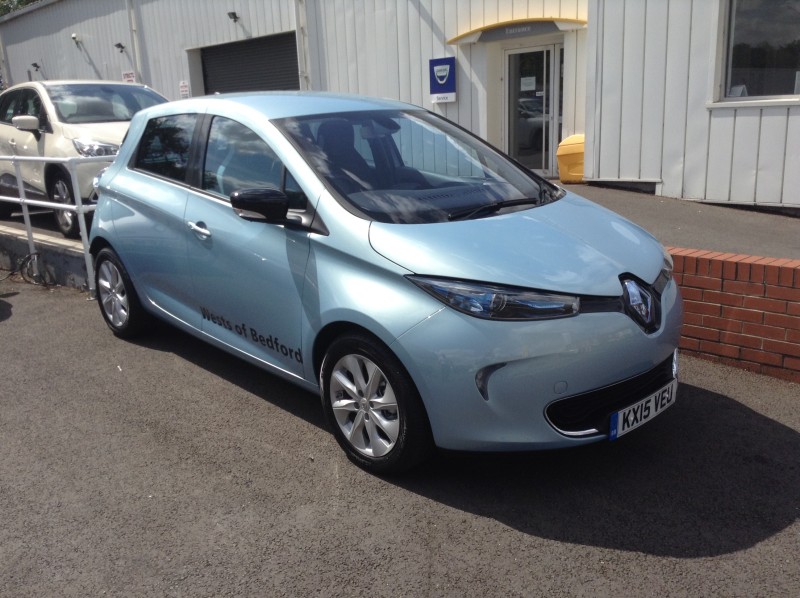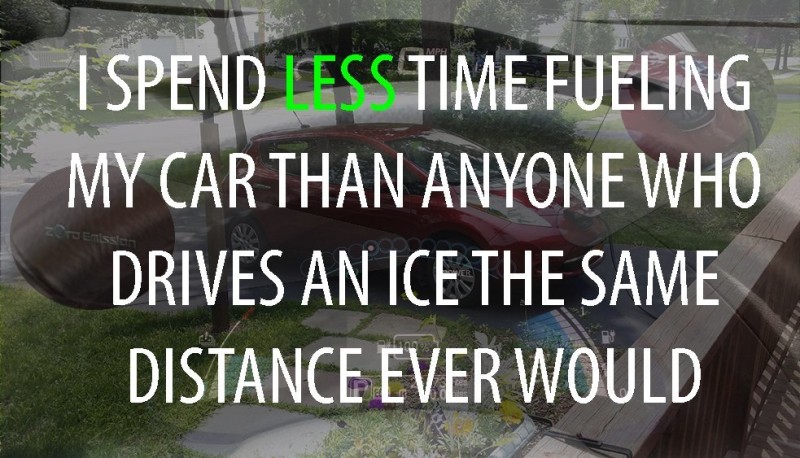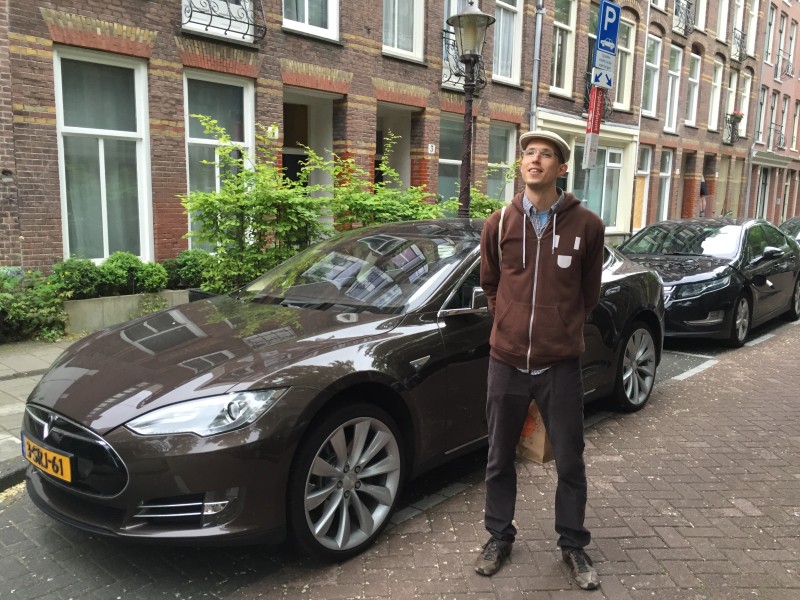I’ll admit it — I’m an electric vehicle nut. Generally speaking, I’m well aware that cars ruin cities, and I’ve thoroughly enjoyed being car-free for over 11 years (the quality of life is certainly higher than with a car commute), but if we’re going to drive, it’s got to be electric (or else we may make this planet completely unlivable for human beings). After years of writing about electric cars, when I finally drove several in 2013, I was shocked (not literally, of course) by their drive quality. No doubt about it, electric cars are better consumer products than gasoline-powered cars — even if you remove all of the health, climate, and environmental benefits.
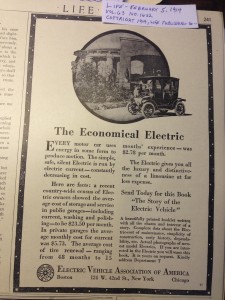 Nonetheless, technological transitions or revolutions don’t happen overnight. In fact, it can take a long time for the masses to even hear about a new technology, let alone use it and buy it. And let’s be honest: we aren’t all Albert Einsteins. Far from it. Basic reasoning may not be a forte of the human species. The obvious will come to light, but it will take some time.
Nonetheless, technological transitions or revolutions don’t happen overnight. In fact, it can take a long time for the masses to even hear about a new technology, let alone use it and buy it. And let’s be honest: we aren’t all Albert Einsteins. Far from it. Basic reasoning may not be a forte of the human species. The obvious will come to light, but it will take some time.
That gets into a matter that I recently realized is one reason I find the EV revolution so interesting. It’s not a simple technological fix. Sure, this has all been made possible from 100+ years of electric car history, and if battery prices drop low enough, electric cars will be so much cheaper and better than gasmobiles that the only people left out of the transition will be those folks “rolling coal.” At the moment, though, the cost is comparable enough that we have to consider the advantages and disadvantages of electric cars vs gasmobiles in order to make a purchasing decision. This is where things get interesting, imho.
First, let me make the case that I think is quite obvious once you drive a fully electric car:
1) Electric cars accelerate much more quickly.
2) Electric cars accelerate and drive much more smoothly and quietly.
3) Electric cars are much more convenient (since ~95% of the time, you simply plug in at home, which just takes a few seconds; and since there’s much less maintenance, including no need for oil, no muffler, no transmission, very few moving parts, less wear and tear on brakes, etc).
Aside from these very direct benefits, other strong benefits include:
4) Zero local emissions, which is better for your health.
5) Zero greenhouse gas emissions if you charge on electricity from clean, renewable sources. And much-reduced emissions even if you charge from the grid.
6) Energy independence or self-reliance, on the national/regional level at least, but potentially on the individual level.
7) You greatly reduced your contribution to the volatile oil-based economy and oil wars.
The downsides?
1) When you do (infrequently) need to charge away from home, charging stations are still less ubiquitous than gas stations, and charging takes longer.
2) A higher upfront cost for a comparably equipped (in the interior) gasoline car (which may or may not be offset over the life of your ownership, depending on various personal variables).
While I think the choice is obvious, many people initially presented with the option to switch to an electric car don’t do so. So the question is, why not? Two obvious reasons are simply lack of awareness and lack of experience. But I think the issue goes far beyond those, unfortunately.
The thing is, much of how we operate in the world is due to habits we’ve developed, and these outer habits are often influenced by even deeper inner habits of thought, and assumptions that may or may not be true. Our personal history often locks us into a viewpoint that is too narrow.
I think this sort of thing is definitely preventing a lot of people from understanding the full story of EVs vs gas-guzzlers. For one, people’s initial reaction regarding charging is about where public chargers are and how long it takes to charge, completely not “getting” that 95% of charging is likely to be a work or at home. From Brian Kent:
It’s going to take some time for people to understand that even if it takes longer to charge an electric car, it’s much more convenient on the whole. As some EV owners like to put it, you wake up to a “full tank” every day, or it’s like “having a gas pump in your garage” (or at your on-street parking spot). You can forget all about the hassle of going to a gas station!
Another barrier is a simple apprehensiveness about new technology. A lot of people are scared of change, and that translates into a fear of new things. As I noted above, electric cars aren’t actually new, but they clearly aren’t the incumbent technology, and most people have no real experience with them. This barrier sits in the way of most technological revolutions, but the good thing is that human willingness to try new things sits on a kind of spectrum. Some are super eager to dive into new tech, then others are simply eager to, then others get intrigued and will do so once a few others have tested the waters, then others come on board when they have a few friends or family members jump in, and so on. So, with time, I think it is a given that this barrier will come down.
What can we do to advance the EV revolution at a quicker pace? Basically, we can get our cities to do what these cities are doing, and we can share our own enthusiasm and experience regarding the electric future we are creating.
Images: LIFE magazine ad photographed by Bob Post; Nissan LEAF & Renault ZOE photos by Zachary Shahan | EV Obsession | CleanTechnica; LEAF charging meme by Brian Kent; and Tesla Model S (+ me) photo by Marika Shahan.
